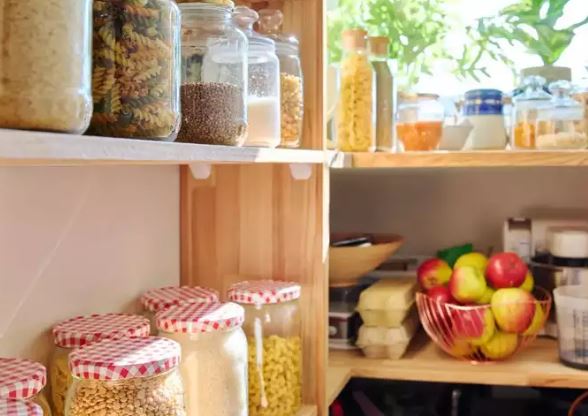Lifestyle
7 things that should never be kept in the kitchen pantry

A well-stocked pantry enhances your cooking experience.
Many of us keep a month’s worth of items in the pantry to avoid frequent trips to the market.
However, sometimes the pantry gets so full that it becomes difficult to find what we need. In the rush, many items end up in the pantry that shouldn’t be there.
An organised pantry makes your work easier and helps you know what should and shouldn’t be stored there.
It’s best to keep only food items in the pantry, but it’s essential to know which food items are suitable.
If your pantry is always full and everything is kept together, read on to learn about items you should avoid storing in the pantry.
1. Do not keep open packets
If you have opened a packet of food, do not keep it with the rest of the items. There are two reasons for this: first, the smell of other items can be absorbed by the open food. Open food items absorb smells very quickly, which can ruin their freshness. The second reason is that if open packets get scattered, your goods will spoil, leading to a waste of money.
2. Avoid keeping vegetables and fruits in the pantry
While food items should be kept in the pantry, not all food items are suitable for it. If you also store fruits and vegetables in the pantry, you are likely spoiling them. These items spoil quickly and should be kept in the refrigerator. Some fruits and vegetables can be kept on the kitchen countertop, but not in the pantry. Store them in a basket in a ventilated area.
3. Do not keep any kind of flour
Do you also keep wheat or other grain flour in the pantry? If yes, stop doing this immediately. Flour should not be kept in closed places as it spoils quickly. Storing it in such conditions can cause insects and weevils to infest the flour, leaving no option but to throw it away. Instead, store flour in an open place. Proper storage can prevent it from spoiling.
4. Stop putting cleaning items in the pantry
Have you ever kept all the items brought from the market in one place in a hurry? If you keep batteries, cleaning products, or other household items in the pantry, it’s dangerous. This increases the risk of ingestion and contamination if your hand accidentally touches a cleaning product and then food items. Never mix food items with other household items.
5. Remove expired food
Immediately remove expired, stale, or food items you are never going to eat from your pantry. Shuffle the items in your pantry every week. Bring the items kept at the back to the front and check their expiry dates. Use items that can spoil quickly as soon as possible. If an item has expired, throw it away. If there is food that you are not going to eat, it’s better to distribute it to someone rather than letting it spoil.
6. Do not store nuts and dry fruits
If you eat nuts and dry fruits regularly, it’s fine, but it’s not a good idea to keep them in the pantry for a long time. The healthy fats in nuts and dry fruits spoil quickly, so store them in the fridge immediately after opening the package. If you are unsure if the nuts in your pantry are still good, smell them or check for mold. Along with nuts, seeds, and dried fruits should also be stored in the fridge to maintain their freshness for a long time.
7. Avoid dish towels
Dish towels and other cloths can attract moths and insects. If insects enter the pantry, your food can get spoiled, and pulses and rice can become infested. Store towels in other cabinets in the kitchen. Keep them in the cabinet next to the sink or hang them near the utensil stand. Hang your apron on the back of the door and store such items separately.
Additionally, items like pet food, vinegar, meat, and bread should not be stored in the pantry as they can spoil quickly and affect other items.







